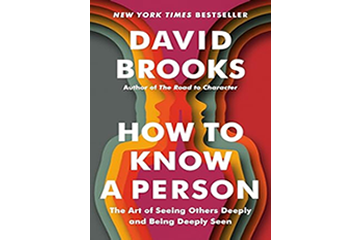How deeply do you connect?
Currently, I am coaching a few engineers and other professionals who are on a journey to learn how to better connect with people. While that might sound peculiar, not everyone has the innate talent to strike up a genuine conversation with new people.
There are numerous reasons why this may be the case, such as upbringing, introversion, or anxiety in social situations. Recently, I attended a charity event where there were over 100 women in a room. When I sat down at a table, a woman asked me who I can with, and I said I was alone. Her response “that was so brave of you”. This incident prompted me to reflect on how challenging it can be for many of us to enter a room full of strangers and make a meaningful connection.
How do you establish a genuine connection with others? There are many techniques to try and see what feels most natural for you, but the heart of connection boils down to three things: the ability to listen attentively, display empathy and ask thoughtful questions.
To truly listen to another human, you need to quiet the story in your own head. To be empathic, put yourself in the other person’s shoes and think about the situation from their perspective. To ask good questions, be mindful about what you are asking so that the questions are more specific. For example, “What are you looking forward to this week?” or “What most excites you about the new year?” Asking thoughtful questions and deeply listening to the answers can be a game changer.
#WiseWords
Worth The Share

During the holiday break, I listened to compelling podcast from the Next Big Idea Club, with the author David Brooks whose book How to Know a Person: The Art of Seeing Others Deeply and Being Deeply Seen was published last October.
He talks about connection and his own personal journey to become a more empathetic and caring person. In a interview on PBS he said: “People feel invisible and unheard… and for society’s sake, it’s important we get a lot better at the skills of building relationships and understanding other people.”
In the podcast, he goes on to say that we vary widely in our skill to read each other accurately, quoting research from William Ickes that strangers in their first conversation when meeting someone read each other accurately only about 20% of the time, and for close friends and family members, that only jumps to 35% of the time where we read each other accurately, on average. David Brooks explains that the reason these percentages are so low is because of our own natural egotism, that sometimes it’s anxiety and/ or that we’re locked into our own viewpoint and can’t see the other person’s point of view. “We are naturally a bit self-centered”.
Since I so often work in communication, I found this work quite compelling. To learn more, check out the podcast or get a copy of the book.
And Finally...

Happy New Year! As you think about the year ahead, perhaps add to your list a commitment to better connect with your colleagues at work, in your community, and of course, with your family and friends.
It is staggering to think that last April, Gallup reported that seventeen percent of U.S. adults reported that they felt loneliness “a lot of the day yesterday”. And while these numbers are better than they were during the pandemic, 17% translates to 44 million Americans.
Be present, listen and ask thoughtful questions.

